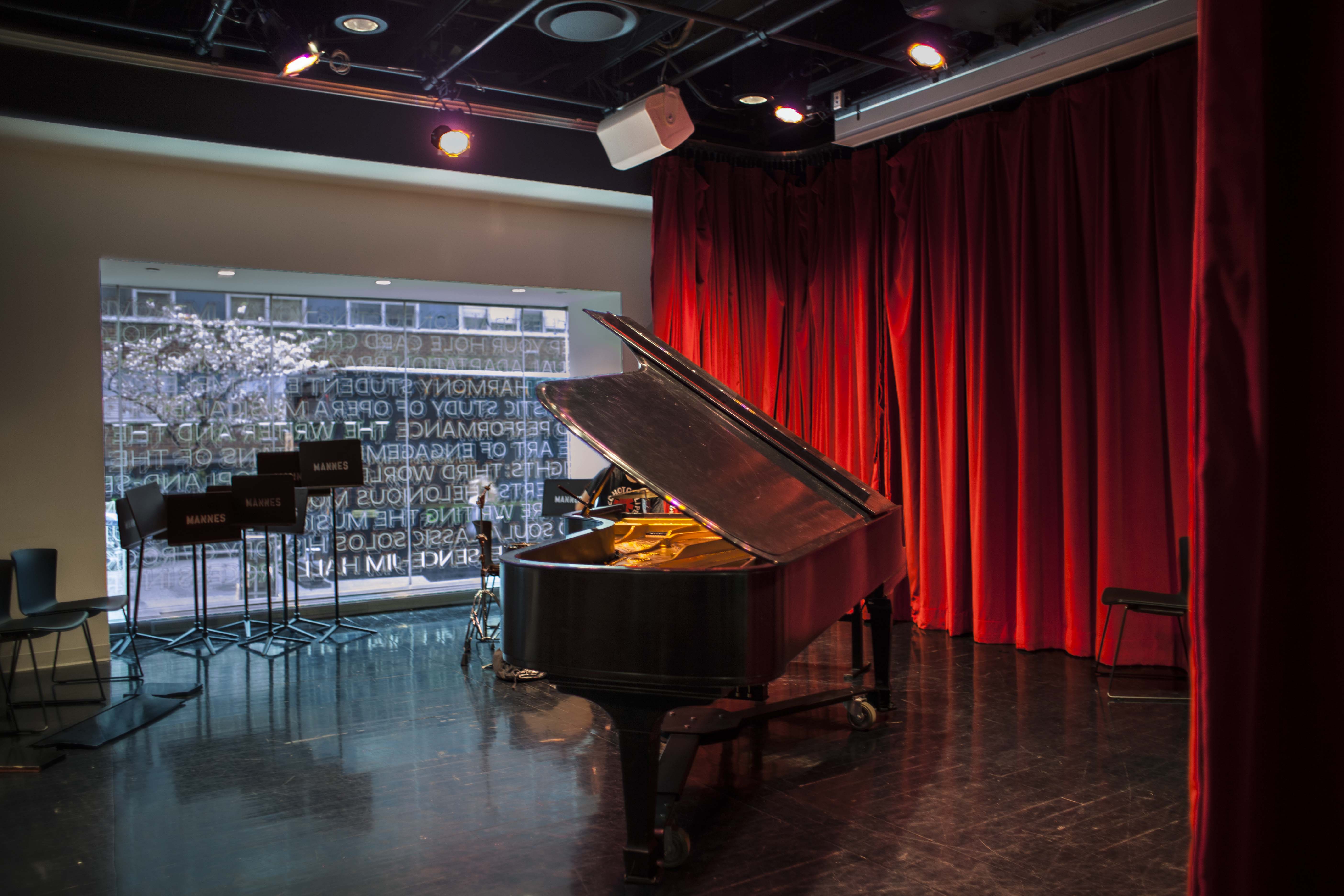When The Stone, an experimental music and performance space in the city, announced it would be moving to a venue at The New School’s College of Performing Arts, students expressed a range of reactions, many of them optimistic. In the weeks since the announcement, however, some students have become worried that The Stone’s move may may infringe on already limited performance space and reflects a lack of dialogue between students and administrators.
Victor Paz, a junior majoring in vocal performance in Mannes at the College of Performing Arts, acknowledged the positive aspects of the venue’s move, but he is worried that it might actually make the lives of New School students more difficult. It’s important for Mannes to always look to the future and to have an entrepreneurial and innovative spirit. It’s a good thing that The Stone is going to have a bigger role here on campus — I just think the way that it’s being handled is not the best,” he said.
Five nights per week, The Stone will occupy the Glass Box Theater, which Paz said is one of the two major performance spaces at the College of Performing Arts. This will make it much more difficult for students to be able to practice, do well in their classes, and meet their graduation requirements, some students said.
Sam Rachmuth, a freshman also majoring in vocal performance, worries The Stone’s move will negatively impact his future at Mannes, due to the constraints on performance space. “As a vocal student, the most important thing is to practice my craft. Aside from meeting my graduation requirements, performing in a recital setting is necessary for my education. I shouldn’t have to worry about struggling to find a time to perform especially considering that I am paying the school,” he said.
“It’s always been a problem at Mannes to secure performing spaces within the school, and that’s important because as music and performance majors, that’s what we do,” Paz said. “In order to graduate, we have to give a recital, and it’s a requirement from a lot of our classes to incorporate performance into our studies.”
Paz elaborated on how important it is to have the right performance space. “There has to be sufficient seating and it needs to be a place where the acoustics are appropriate. For a lot of singers at Mannes, they either want to do their recitals on the fourth floor performance space or in The Glass Box theater. Those are the two main spaces on campus for students to do their performances. There is also a little recital hall, but a lot of students don’t do their recitals there,” Paz said, referring to the recital hall on the seventh floor.
Maria Zollo, a senior vocal performance major, agrees that finding performance space is a tough task. “It was really difficult to book a place for my graduation recital this year, more so than in the past — I think that’s because the school’s population is growing.” Zollo said.
Amos Lee, a senior and violin performance major, expressed his frustration over The Stone, via email.
“Students plan concerts ahead of time. Finding venues is the hardest thing to do when it comes to money. Now that we have lost one of our main halls, we are stuck fighting among ourselves,” he said.
Although The Stone will only be holding performances in the evening, leaving the space free for students to use during the day, Paz was concerned that the schedule might be a problem for the turnout to student shows. “Everyone has their recitals in the evenings because people work and that’s the time everyone can get together,” he said. “Do you really want to have your recital at 1 o’clock? Who’s gonna show up to that?”
Rachmuth also emphasized the importance of having a good turnout at a performance. “It’s so important to have an audience. If you can fill a concert hall, it really boosts your self confidence, and you know that your hard work is being recognized,” he said.
Paz was a Mannes student senator in 2016 and says that no Performing Arts senators were consulted about the move. “The administration did not consult with the students or the faculty, and that’s a recurring issue with the Mannes and performing arts administration. There is a big divide between the agenda of the administration and the faculty and students. They’re not really doing a lot to keep us informed.”
“There isn’t a constant flow of dialogue between administration and the students,” Rachmuth said. “They seem to be mostly invested in the music which isn’t necessarily a bad thing, but we have a right to know about something that directly affects us.”
“Although this could be a great thing, they failed to take the students’ best interest into account,” Zollo said.
When asked about his thoughts on students’ worries, Richard Kessler, dean of Mannes and executive dean of Performing Arts, suggested that securing performance spaces would not be a problem. “No student at Mannes will have to seek outside space for any required recital, as long as they have met the stated deadline for reserving recital space and do not seek to reschedule their reservation once it has been set.”
“Students throughout The College of Performing Arts, including Mannes and The New School, will benefit from The Stone’s relocation to The New School,” Kessler said via email. “The Stone at The New School will expand the professional musical presentations of CoPA, adding to our long-standing professional presenting arm, The New School Concerts.”
Kessler noted that administrators have just begun to discuss programming with The Stone, but that “students might be able to collaborate on a deeper level with the artists who perform at The Stone, more so than they already do through The Stone Workshops.”
Photo by Julia Himmel







